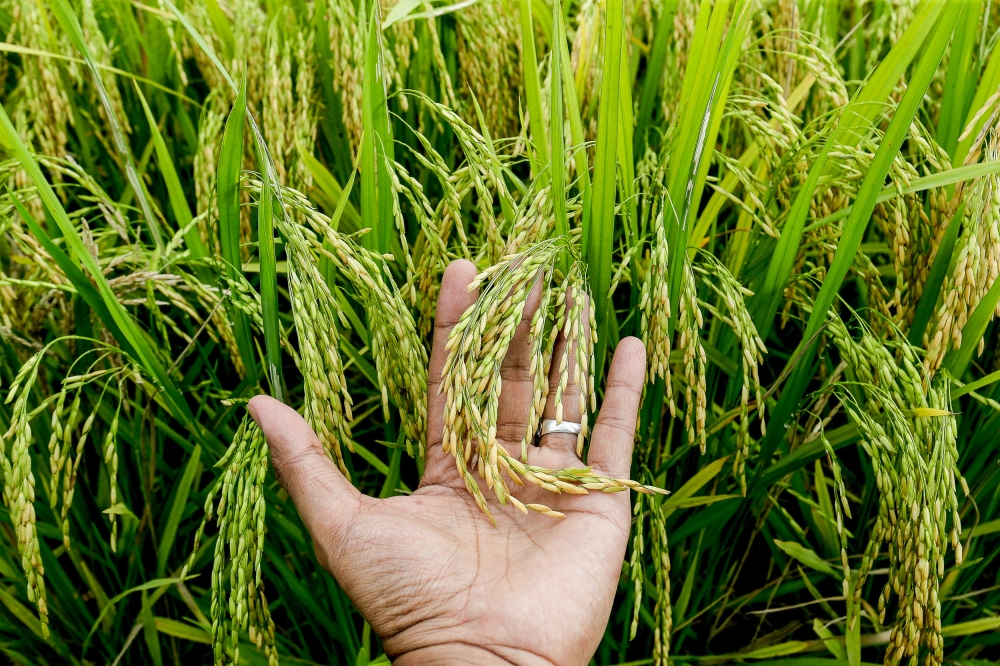
From rice panic to price collapse: The ESG blind spot in Malaysia’s food security — Dalilawati Zainal
Thursday, 04 Sep 2025 8:39 PM MYT
SEPTEMBER 4 — In 2023, the world went through a rice panic. India’s abrupt export restrictions and unpredictable weather patterns sent rice prices to 15-year highs. Malaysia, which relies heavily on imports for its staple grain, watched anxiously as food security once again became headline news. By 2025, the story has shifted. Thanks to record harvests and relaxed trade restrictions, rice prices have now fallen to their lowest point in eight years (Financial Times, 2025). Consumers have enjoyed relief from inflationary pressures. Yet, beneath the surface, the downturn presents a deeper problem: are Malaysia’s policymakers and agribusinesses preparing for long-term resilience, or merely reacting to temporary swings in the market?
Malaysia remains structurally vulnerable. More than 30 per cent of its rice is imported, while the national self-sufficiency rate has stagnated around 70 per cent for more than a decade. The sharp fall in global prices may look like stability, but it risks encouraging complacency among industry leaders and policymakers. Low prices reduce the urgency to modernise infrastructure or invest in domestic production. Instead of using this period as breathing space to strengthen resilience, the sector risks slipping back into business-as-usual thinking. For a country where rice is both staple food and symbol of national identity, such complacency is dangerous. It weakens the resolve to treat food security as a structural challenge rather than a cyclical crisis.

Ripening paddy fields are seen in Sekinchan on May 16, 2024. — Picture by Sayuti Zainudin
The missing piece
Food security in Malaysia suffers from a structural blind spot in ESG reporting. Most rice producers and millers are smallholders and SMEs, who are not required to publish sustainability reporting. As a result, little is known about their practices, vulnerabilities or readiness for climate and market shocks.
This lack of visibility poses risks to Malaysia’s ability to assess its true status and progress toward food security, which is vital for national well-being. At the same time, big players like BERNAS focus their ESG disclosures narrowly on operational issues such as carbon emissions and water use. Rarely do these reports address upstream realities like climate-resilient cultivation, soil degradation or land management in paddy areas. Large corporations often approach ESG with a compliance-driven mindset, while farmers contend with daily survival.
Because rice is largely a domestic staple, it escapes the international scrutiny faced by globally traded commodities such as palm oil or aquaculture. The result is troubling: Malaysia’s most strategic food crop remains outside the ESG agenda, leaving the nation vulnerable to the next crisis. Without mechanisms to include smallholders and SMEs in sustainability reporting, crucial risks to food security remain hidden.
The investment that is missing
The tools to build resilience in rice production are well-known: climate-resilient seed varieties, precision agriculture using drones and sensors, efficient irrigation systems and digital traceability for supply chain transparency. Yet, adoption across Malaysia’s rice sector remains frustratingly slow. The industry continues to suffer from a lack of significant investment in rice-focused research and development. Government programmes, while helpful, are often fragmented and short-lived, shifting with political cycles rather than building continuity. Public-private collaboration to scale up agri-tech solutions remains limited. With rice prices now falling, the risk is that stakeholders will delay upgrades and innovation in favour of short-term cost control, precisely the opposite of what resilience requires.
The hardest hit in this low-price environment are smallholder farmers, who produce much of Malaysia’s domestic rice. Without mechanisms to stabilise income, such as price guarantees, cooperatives or inclusive contract farming, many smallholders are left vulnerable. Lower earnings reduce their ability to purchase fertilisers, adopt improved seed varieties or invest in modern equipment. Over time, these constraints push some to abandon rice farming altogether. Despite their central role, smallholders remain largely invisible in ESG reporting and excluded from corporate long-term strategies. This is not only a failure of social sustainability, but also a structural risk to Malaysia’s food supply. Losing smallholders means losing the very foundation of domestic rice resilience.
The road to food security
Malaysia's National Agrofood Policy 2.0 aims to modernise the agricultural sector through technology, sustainability and productivity. However, implementation in the rice value chain has been weak, with limited enforcement and transparency around BERNAS's role as monopoly importer. Subsidies continue to reward production volume rather than resilience or sustainability, reinforcing inefficiencies and leaving Malaysia vulnerable to future shocks from climate volatility, geopolitical tensions or renewed export bans abroad.
To ensure true resilience, agribusinesses must recognise their role in safeguarding food security, integrate rice into ESG frameworks, invest in precision farming, weather analytics and crop diversification, and empower smallholders through contract farming, strengthening cooperatives and fair pricing mechanisms. Collaboration between agribusinesses and policymakers is also crucial to improve transparency on rice imports, stock levels and distribution, and hold monopoly structures accountable.
Building resilience before the storm
The drop in rice prices may have eased consumer pressure, but it has not resolved Malaysia’s underlying vulnerabilities. Weak policies, opaque governance, limited innovation and the marginalisation of smallholders continue to undermine the rice sector. Treating food security as a government responsibility alone is no longer sufficient. It is a corporate responsibility too, embedded directly in the UN Sustainable Development Goals, especially SDG 2: Zero Hunger.
This moment of calm in the rice market is a rare opportunity. If agribusinesses and policymakers act decisively now, integrating food security into ESG, investing in innovation and empowering smallholders, Malaysia can create a stronger foundation for its most critical staple. If they do not, the nation risks falling back into its familiar cycle of crisis and complacency. Resilience is not built when panic strikes, but in times of calm, when the choice to prepare is still available.
* Dr Dalilawati Zainal is a senior lecturer at the Department of Accounting, Faculty of Business and Economics, Universiti Malaya, and may be reached at dalilawati@um.edu.my
No comments:
Post a Comment